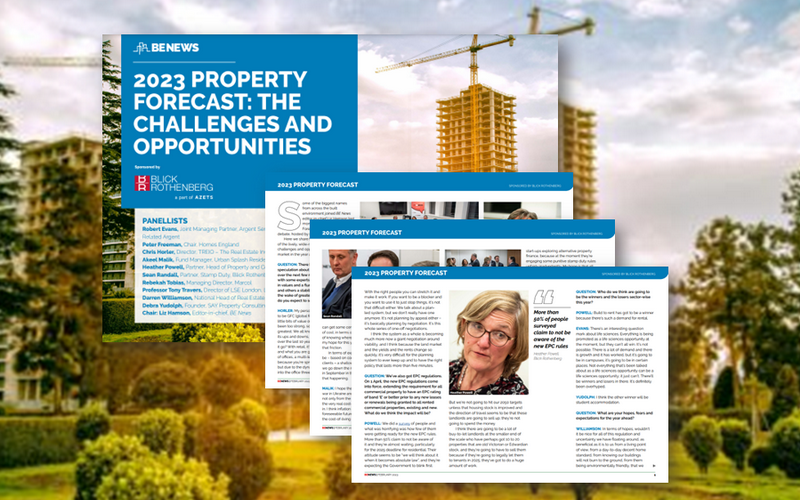Getting the VAT wrong on a property deal could now see interest charges levied under HMRC’s new rules
Interest is generally charged by HMRC on under-declared or over-claimed amounts of VAT

Interest is charged to encourage businesses to pay promptly and, historically, has not been seen as a penalty but rather as a way to compensate the Exchequer for the loss of use of any taxes that are paid late. This is commonly referred to as commercial restitution. In circumstance where there was no loss of revenue to the Exchequer, HMRC were given discretion by Parliament to waive the interest charges. This has been regarded as a fair and equitably position for many decades.
For example, if the seller of a property incorrectly failed to charge VAT, then the buyer would not be in a position to reclaim any VAT. Where the buyer would have been entitled to full VAT recovery, the failure on the seller’s part has not resulted in any loss to the Exchequer. In these circumstances, corrective action would have been necessary, but without any interest levied on the seller.
However, this all changed for transactions falling in VAT returns starting on or after 1 January 2023 with the introduction of the new penalty and interest rules. HMRC no longer has the discretionary power to waive interest on VAT underpaid, even where there has been no loss to the Exchequer. With interest charged at 2.5% above the Bank of England’s base rate, it is now arguably a punitive measure, especially in circumstances where HMRC are at no time deprived of any revenue. The interest charges could be a significant additional cost to businesses involved in high value property transactions.
HMRC’s old policy
HMRC policy and procedures prior to 1 January 2023 were clearly set out on VAT652, the form used to disclose error corrections when VAT was underpaid. It stated:
‘We will normally charge interest if the charge represents commercial restitution. By this we mean the compensation required when we have been deprived of an amount of VAT for a period of time as a result of an under declaration of the amount of tax due on a VAT return, where none of that tax is recoverable by a third party as if it were input tax.
If you consider that charging interest for an error would not represent commercial restitution, then you should insert ‘No’ in the box marked ‘Interest’ to indicate this. Guidance to help you decide if interest is due is available in Notice 700/43 Default Interest. If you do not complete this box you may be charged interest. Remember, that if you insert ‘No’ and we later find that interest is due, the amount we then charge will be greater.’
In addition to the error correction process, HMRC also applied the same approach to error which they discovered resulting in assessments being issued. Public Notice 700/43 confirms this at paragraph 2.2 which states:
By ‘commercial restitution’ we mean compensation for the loss of use of any underdeclared or overclaimed VAT.
We will normally only charge you interest if we have not had the use of this VAT for a period of time. We would not, for instance, generally charge you interest if you have underdeclared an amount of VAT which would have been immediately reclaimable as input tax by a third party, as this would not represent commercial restitution.
The new rules from 1 January 2023
For VAT return periods starting on or after 1 January 2023, HMRC say they no longer have any discretion to waive interest. While the changes to the penalty regime were widely publicised towards the end of 2022 and beginning of 2023, the change to the interest regime seems to have gone under the radar. This has not been helped by HMRC failing to update the above narrative contained in VAT Notice 700/43, but contrast this to HMRC’s internal manual CH140295, which provides guidance to its officers. This now states the following:
Interest: liability to pay interest – no discretion
The law requires a person to pay the correct amount of tax due to HMRC by the due and payable date and HMRC charges interest when the person does not fulfil this obligation.
Interest is charged to encourage prompt payment and recompense the Exchequer for the loss of use of taxes paid later than the statutory due date.
Liability to pay interest arises automatically and HMRC does not have any statutory discretion not to charge interest which is legally due.
Note: Under the previous VAT interest rules in VATA 1994, HMRC had powers to assess interest under Section 76 and Parliament provided HMRC with statutory discretion over whether or not to do so. HMRC exercised this discretion to not charge default interest under section 74 VATA where a taxpayer had under-declared an amount of VAT which would have been reclaimed as input tax by a third party. This policy (often referred to as commercial restitution) does not apply under the new FA09 interest rules, as HMRC do not have statutory discretion to not charge this interest when it is legally due.
The risk for businesses
This change could lead to additional exposure for many businesses, especially given the high values associated with most property transactions. This could be the case even if the period of default is relatively short, or even worse where the error is not picked up for some time, with interest charges potentially running for up to four years.
Take for example a multi-million-pound property sale initially treated as outside the scope of VAT because it qualifies as a Transfer of a Going Concern. If one or more of the Transfer of a Going Concern conditions are not met, and VAT should have been charged, the seller would be required to raise a VAT invoice and accounts for the VAT. Even if the buyer is entitled to recover the same amount of VAT in full, the seller will now be charged interest for the period when the VAT should have been paid until the time it is actually paid. This will be the case even though HMRC’s overall revenue position remains the same.
The seller may of course be able to pass on the interest charge to the buyer in circumstances where the breach of the Transfer of a Going Concern conditions was caused by the actions or inactions of the buyer. This will depend on the contractual clauses within the sale agreement, so it will be more important to ensure both the seller’s and the buyer’s positions are considered and protected. Either way, one or other of the taxpayers lose out and HMRC benefits, with what could be termed ‘unjust enrichment’ in the form of a sizable interest charge.
The Transfer of a Going Concern scenario is only one example where the incorrect VAT treatment of a property transaction could now give rise to a significant interest charge, where previously this would have been waived. VAT and property deals are arguably the most complex area of the tax, and this change (especially with the current high rates of interest) will now result in actual losses. There will be a more urgent need for businesses to ensure that they have robust VAT controls in place, paying extra attention to high value transactions even between fully taxable entities.
It must be hoped that the Treasury (or Parliament) will give this further consideration and restore some fairness and equity by allowing interest to be waived in certain circumstances.
Would you like to know more?
If you would like to discuss any of the above issues or are seeking to mitigate VAT costs on property or any other transactions, please get in touch with your usual Blick Rothenberg contact or Gabby Donald, using the form below.
Contact Gabby

You may also be interested in

Bleak News from the UK Property Market

2023 Property Forecast: The Challenges & Opportunities













